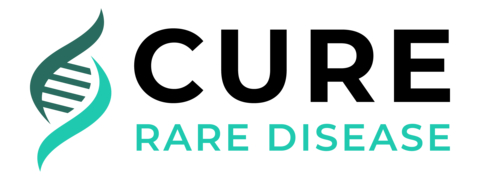Cure Rare Disease Receives Orphan Drug Designation from FDA for Investigational Therapy Targeting Spinocerebellar Ataxia Type 3 (SCA3)
Cure Rare Disease Receives Orphan Drug Designation from FDA for Investigational Therapy Targeting Spinocerebellar Ataxia Type 3 (SCA3)
WOODBRIDGE, Conn.--(BUSINESS WIRE)--Cure Rare Disease (CRD), a clinical-stage nonprofit biotechnology company developing genetic medicines for ultra-rare and rare conditions, today announced that the U.S. Food and Drug Administration (FDA) has granted Orphan Drug Designation (ODD) to its investigational anti-sense Oligonucleotide therapeutic for the treatment of Spinocerebellar Ataxia (SCA), including Spinocerebellar Ataxia Type 3 (SCA3), a progressive and currently untreatable neurodegenerative disorder.
The FDA granted the designation to CRD-002, a single stranded anti-sense oligonucleotide, developed specifically to target the underlying cause of SCA3. This designation recognizes the significant unmet medical need within the SCA3 community and acknowledges the potential of CRD’s approach to provide a meaningful therapeutic benefit to affected individuals.
“Receiving Orphan Drug Designation for our SCA3 program is an important milestone and a validation of our mission to deliver life-saving therapies to patients with ultra-rare and rare diseases,” said Rich Horgan, Founder and CEO of Cure Rare Disease. “This designation not only provides key development incentives, including potential market exclusivity upon approval, but also accelerates our efforts to bring hope to families battling this devastating condition.”
Spinocerebellar Ataxia Type 3 is one of the most common dominantly inherited ataxias globally and is marked by progressive loss of coordination, balance, and motor control. CRD’s therapeutic approach offers a novel mechanism to slow or halt disease progression through targeted RNA-based modulation.
Orphan Drug Designation is granted to investigational therapies addressing diseases affecting fewer than 200,000 individuals in the U.S. The benefits include tax credits for qualified clinical trials, exemption from certain FDA application fees, and eligibility for seven years of marketing exclusivity if the drug is approved.
Cure Rare Disease’s SCA3 program is being advanced through strong collaborative partnerships with Leiden University Medical Center, UCLA Medical Center, Charles River Laboratories and Axolabs. These partners are playing a critical role in preclinical research, toxicology, and GMP manufacturing to ensure the program moves efficiently toward the clinic.
Cure Rare Disease remains committed to progressing its SCA3 program toward clinical readiness, supported in part by a $5.7 million grant from the California Institute for Regenerative Medicine (CIRM) awarded earlier this year. The company is on track to complete IND-enabling studies and submit an IND to FDA in 2026.
For more information about Cure Rare Disease and its research pipeline, please visit www.cureraredisease.org.
Contacts
Media Contact:
Ahna Gavrelos
ahna@curerd.org
